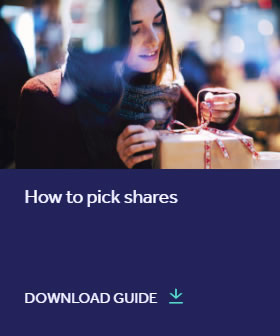Search for Companies, Tipsters or Sources…
Companies
Tipsters
Brokers
Sources
Or view the latest share tips
Company Results
Tipster results
Broker results
Sources results
Fund Manager results
Tips from these results
- Hold Greggs (GRG) by Royston Wild in The Motley Fool
- Avoid Vianet Group (VNET) by Steve Moore in ShareProphets
- Avoid Future (FUTR) by Steve Moore in ShareProphets
- Avoid Dillistone Group (DSG) by Steve Moore in ShareProphets
- Hold GSK (GSK) by LBBW
- Hold GSK (GSK) by DZ Bank
- Buy Playtech (PTEC) by Deutsche Bank
- Sell AstraZeneca (AZN) by Deutsche Bank
- Buy Anglo American (AAL) by Berenberg
- Buy Shell (SHEL) by Goldman Sachs
- Buy Marks & Spencer Group (MKS) by Goldman Sachs
- Neutral Bunzl (BNZL) by Goldman Sachs
- Buy Linde (0M2B) by UBS
- Buy British Land Company (BLND) by Berenberg
- Buy International Workplace Group (IWG) by Berenberg
- Neutral Glencore (GLEN) by JP Morgan
- Overweight Rio Tinto (RIO) by JP Morgan
- Hold Schroders (SDR) by Jefferies
- Buy Lloyds Banking Group (LLOY) by Ben Martin in The Times - Tempus
- Neutral easyJet (EZJ) by ODDO BHF
What are Open and Close Prices?
Informational page on About Open and Close Prices, a quick guide
The close price of a stock refers to the last trading price of a stock on a given day, while open price refers to the first trading price of the stock.
There can often be a difference between the closing price of a stock one day and its open price the next day. This is because news about a company can come out while the market is closed (in the UK between 4.30pm and 8am), which then alters the price that investors are prepared to pay to buy a share. Transactions happen and prices shift even after the market is closed as the markets allow limited after-hours and before-hours trading.
Investors can often change their minds about the value of a stock based on new information about what a stock is worth whilst the market is closed, meaning that they underlying price can change without any real trades taking place.
How Stock Prices Work
Unlike regular prices for many day to day goods or services, stock market price are much more fluid and constantly shifting, as they are constantly being re-evaluated. The price quoted for a stock at any point is simply the price paid the last time that stock changed hands. But market prices change constantly and there's no guarantee that you'll get that price if you place an order to buy or sell shares. Stock exchanges bring buyers and sellers together with prices being determined through matching what buyers are willing to pay and what sellers are willing to accept.
How Closing Prices Are Determined
The closing price is the valuation of a stock when the market closes. The listed closing price is the last price that was paid for a stock during the business hours of the exchange where the stock trades.
The market doesn't list a price at close and then hold that price until the following morning as trading in stocks continues even after an exchange closes. Investors can place buy and sell orders “after-hours”. Depending on the system, these orders either are filled immediately or are held in a queue to be filled when the market opens. Those trades will determine the next morning’s opening price.
Companies can often make major announcements after the markets close to prevent any overreaction while active trading is taking place. In the meantime, investors will be watching for news and events that could affect the stock price. If they announce positive news, people will be willing to pay more for the stock in the morning, but the opposite is true while if they announce bad news, then it is likely that price will fall.
Determining the Open Price
Just as the closing price is the price paid on the last transaction of the business day, the opening price is derived from the price of the first transaction of a business day. That price can be influenced by anything that has happened since the previous close.
If a company whose stock closes at £10 per share one day breaks news that the company is in dire financial trouble, then when the market opens the next day no one is going to be willing to pay that price. If the most anyone is willing to pay is £1 a share, then the stock will open at £1. This is constantly happening in the markets and it helps us to understand why the close price and the following open price can be different.
Join Now

